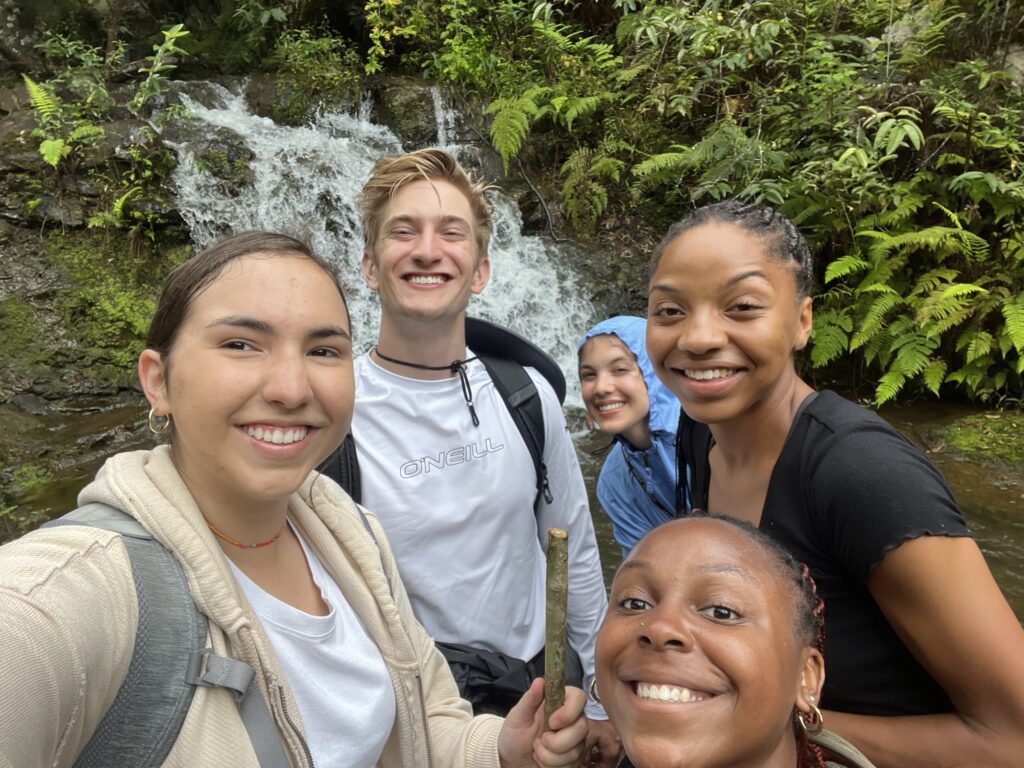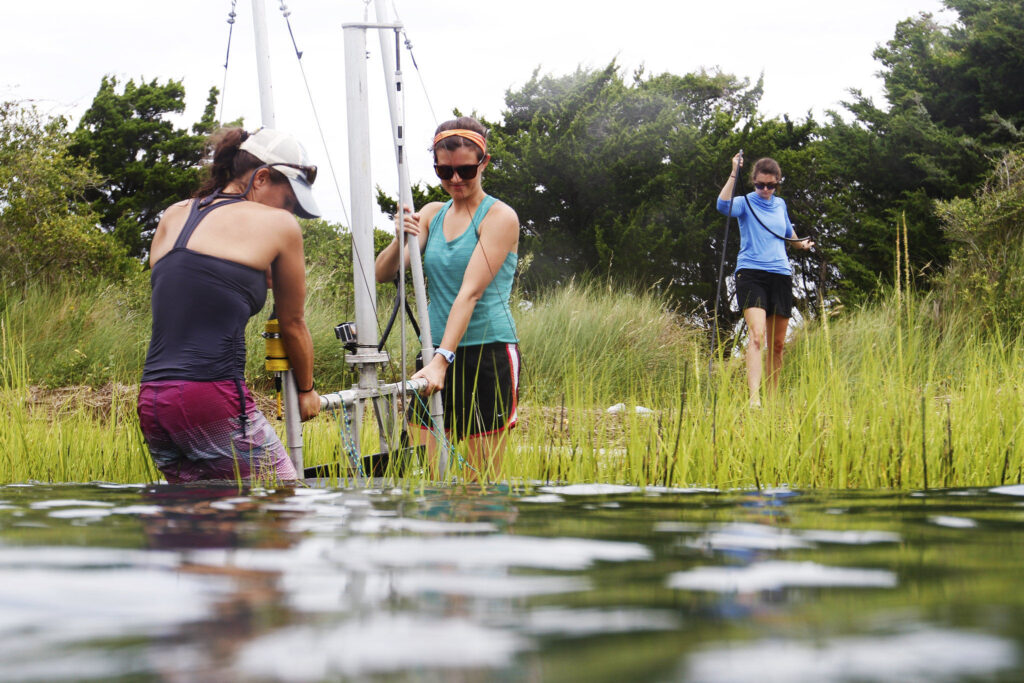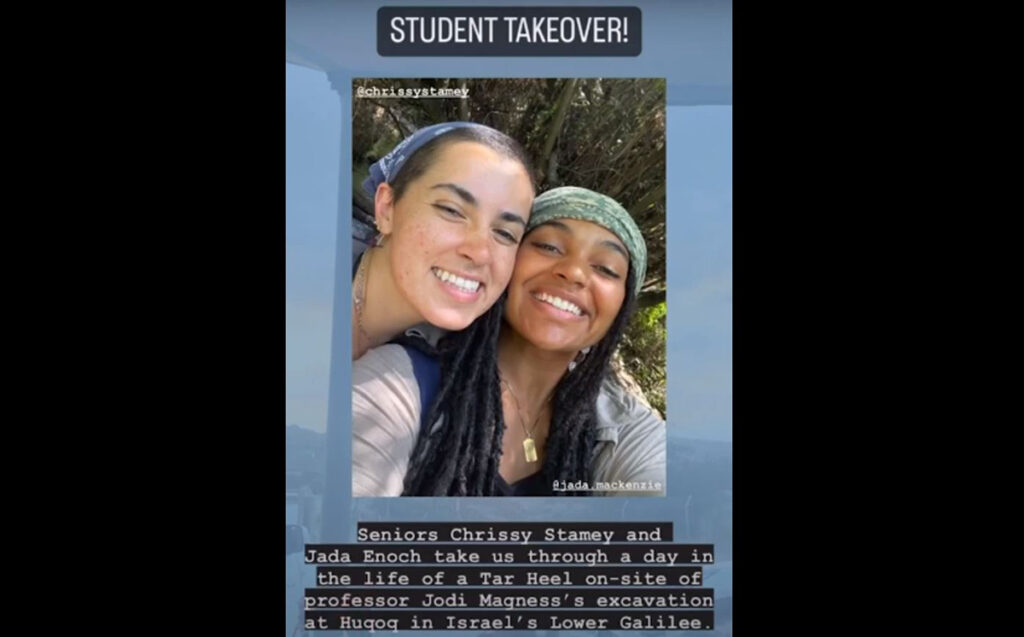A heart for the humanities
May 8, 2024
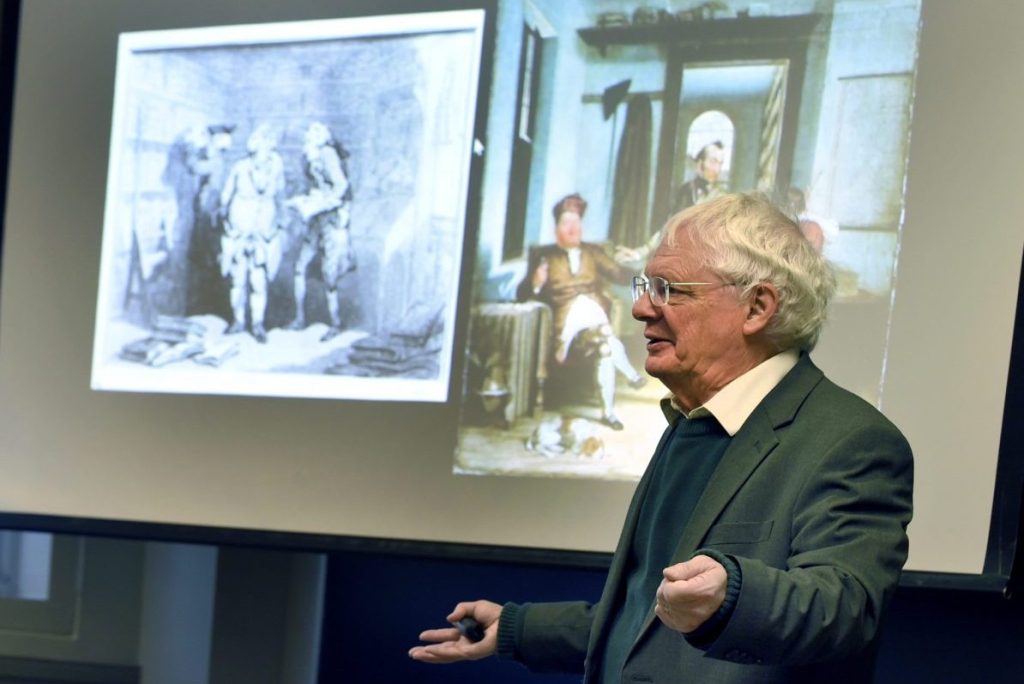
UNC historian Lloyd Kramer is teaching his last class this semester — “Modern European Intellectual History,” which covers the evolution of ideas in Europe from the 18th century to the beginning of the 21st century. (photo by Donn Young)
The Carolina history professor has spent nearly four decades sharing the enduring value of the humanities with audiences inside and outside the classroom.
When students question Lloyd Kramer about the value of a humanities degree, the veteran professor of history responds succinctly: It prepares you for life.
Fields within the humanities and social sciences help people understand the shared human experience, and that is empowering, Kramer said. Some knowledge of history, literature, philosophy, languages, religion or other disciplines that shed light on the world gives people a perspective and framework for dealing with problems, both personal and societal.
“Problems in life are inevitable, and we know from history that other human beings have struggled with issues that are similar to ours,” Kramer said. “Whether it’s the loss of a job, feelings of disenfranchisement, political polarization, warfare, economic depression or any other crisis, if we understand how the issues we face have also been addressed by generations of people around the world, we have a way to make sense of what’s going on today.”
For the past 10 years, Kramer has shared a passion for the humanities with people across the state as the first full-time faculty director of Carolina Public Humanities, based in the College of Arts and Sciences. Its programs create a multi-layered cultural bridge, forging deeper connections and sparking curiosity and civic dialogue between faculty and the citizens of North Carolina.
Kramer will step down at the end of June after completing two terms of leading Carolina Public Humanities.
He has long been a devotee of the humanities. With a specialty in modern European history and a focus on 19th-century France, Kramer came to Carolina in 1986 and has worn many hats through the years. In addition to being a favorite professor, he has served as chair of the department of history, interim Faculty Council chair and associate director of the Institute for the Arts and Humanities. He is a recipient of the institute’s George Johnson Prize as well as the University’s prestigious Thomas Jefferson Award.
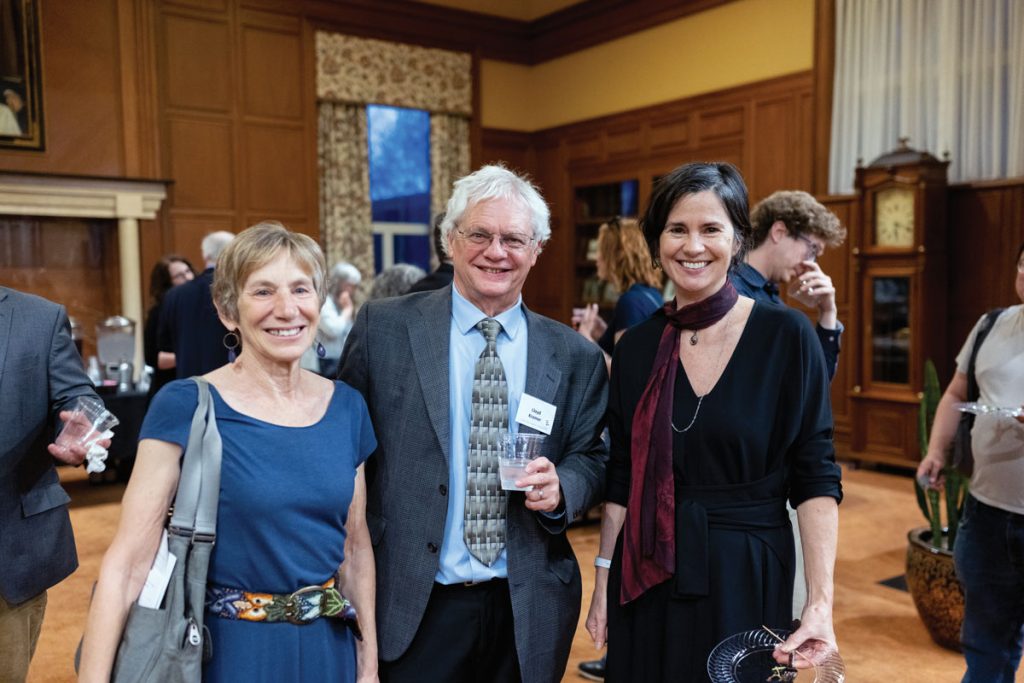
Of the public, for the public
Service to the state of North Carolina is an intrinsic part of UNC-Chapel Hill’s mission, with “lux, libertas” — light and liberty — as the University’s founding principles.
Carolina Public Humanities has been involved with the civic life of the state since its inception in 1979.
“We have the expression in our strategic plan that we are ‘of the public, for the public,’” Kramer said.
For people to be truly engaged with fundamental institutions like voting and public education, Kramer said, they need a broad perspective and the means to tap into the enormous resources of human experience. It is analogous to a person who has no memory or understanding of what happened in their life last week trying to make sense of their current circumstances, Kramer explained.
He is concerned that today’s emphasis on quick, often superficial communication through social media, television sound bites and the like is diminishing the knowledge of history, civic life and political institutions.
“That makes the work of Carolina Public Humanities even more important. Its programs, which include work with public educators across the state, weekend seminars for lifelong learners and collaborations with community colleges, are designed to make people better prepared to engage with civic life as well-informed human beings,” Kramer said.
Some offerings, such as the traditional weekend seminars featuring topics such as the protest music of the ’60s or a deep dive into the conflict in Ukraine, have been woven into the fabric of Carolina Public Humanities from the beginning. Under Kramer’s tenure, others have expanded or evolved in creative ways to meet a growing need.
Carolina K-12 brings the University’s vast resources to teachers in every corner of the state. The name and scope of the program changed several years ago with support from the nonprofit North Caroliniana Society, which promotes knowledge of the state’s history, culture, literature and environment.
Carolina K-12 provides teachers with a treasure trove of free curriculum materials, lesson plans and activities, all available for download on its website. It also offers a broad range of professional development programs in the humanities for public school teachers.
In 2017, a new position for state outreach was created with support from private philanthropy. That led to the expansion of Carolina K-12 as well as a host of other new collaborations with community colleges, libraries, bookstores and theaters — all located outside Chapel Hill. Earlier this spring, for example, Pitt Community College hosted an exhibit of student photographs depicting climate change in the American South alongside others featured in the Center for the Study of the American South’s quarterly journal Southern Cultures.
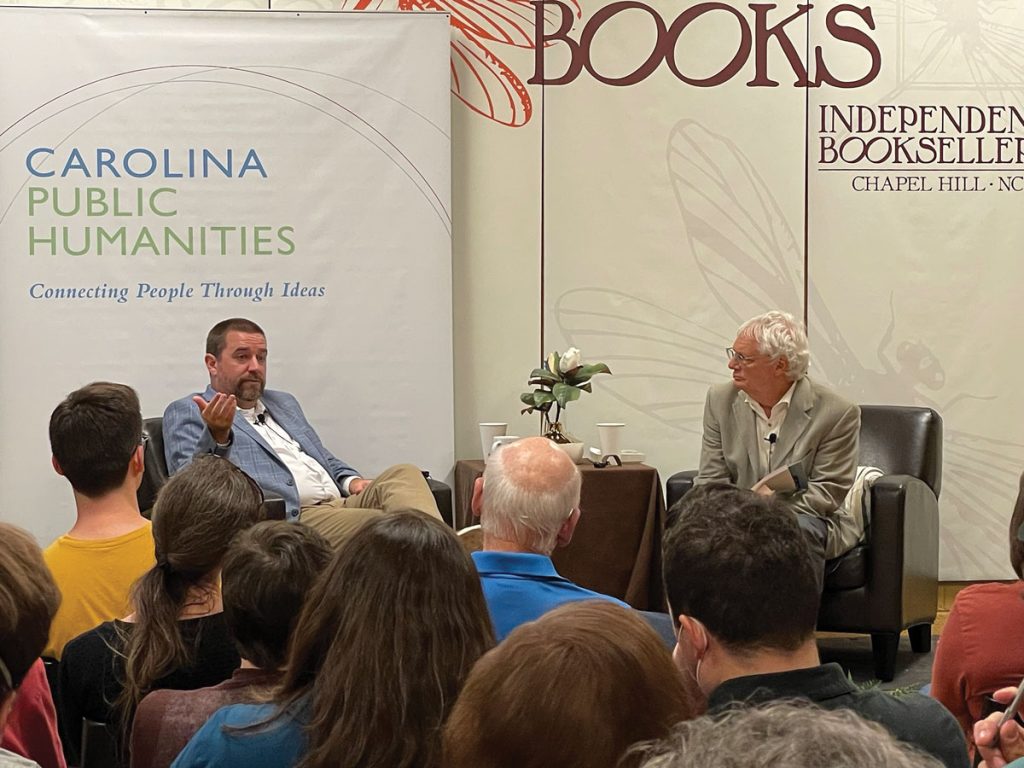
In Chapel Hill, Carolina Public Humanities has expanded its partnership with Flyleaf Books to offer two programs: The Great Books Program features faculty members leading robust explorations of diverse, classic texts with both in-person and online participants. It is a two-way discussion, not a lecture, akin to an ancient symposium or 18th-century salon, Kramer said. Humanities in Action highlights a faculty member talking about a specific theme, such as U.S.-China relations or transitions in Latin America.
Other programs are designed specifically to engage the next generation of civic-minded citizens.
With funding from Miriam ’83 and Tom Zietlow (MBA ’01), Carolina Public Humanities launched the Zietlow Project for Civic Engagement, which aims to strengthen U.S. democracy by fostering young people’s informed participation in civic life. Students apply a humanities perspective to pressing issues and are encouraged to communicate their understanding to the wider community.
In honor of longtime philosophy professor Maynard Adams, Carolina Public Humanities launched the Adams Graduate Fellows Program in Public Humanities and the Adams Symposium. Adams, a staunch advocate for the importance of the humanities in public life and education, was the founder of Carolina Public Humanities.
Each year, 10 graduate students from different disciplines are chosen to explore effective ways to interpret the humanities outside the University environment. In addition, the annual symposium features a public discussion of key issues — the environment or anger and forgiveness, for example. This year’s symposium focuses on the nature of democracy and how to help make it flourish.
Meeting evolving needs
Over the years, Kramer has helped Carolina Public Humanities create a diverse, expansive portfolio of activities and public programming.
His openness to the staff’s innovative ideas and the nurturing way he turns those ideas into action are unrivaled, said Max Owre, executive director. Kramer blends good cheer, gravitas in his field, earnestness in validating other people’s stakes in the program and knowing how to get things done, Owre said.
Owre has known Kramer since 2002, when Owre came to Carolina for his doctoral work. Kramer was his adviser and the primary reason he chose UNC’s history department over other options.
“I can’t stress enough how collaborative, creative and fun Lloyd is to work with, and he is the hardest-working person I know,” said Owre, who has been an integral part of Carolina Public Humanities since 2009.
Kramer gives full credit to the collaborative spirit of the program’s staff and its broad community of supporters.
“It has been incredibly valuable to work with the colleagues on this team who believe in our mission,” he said.
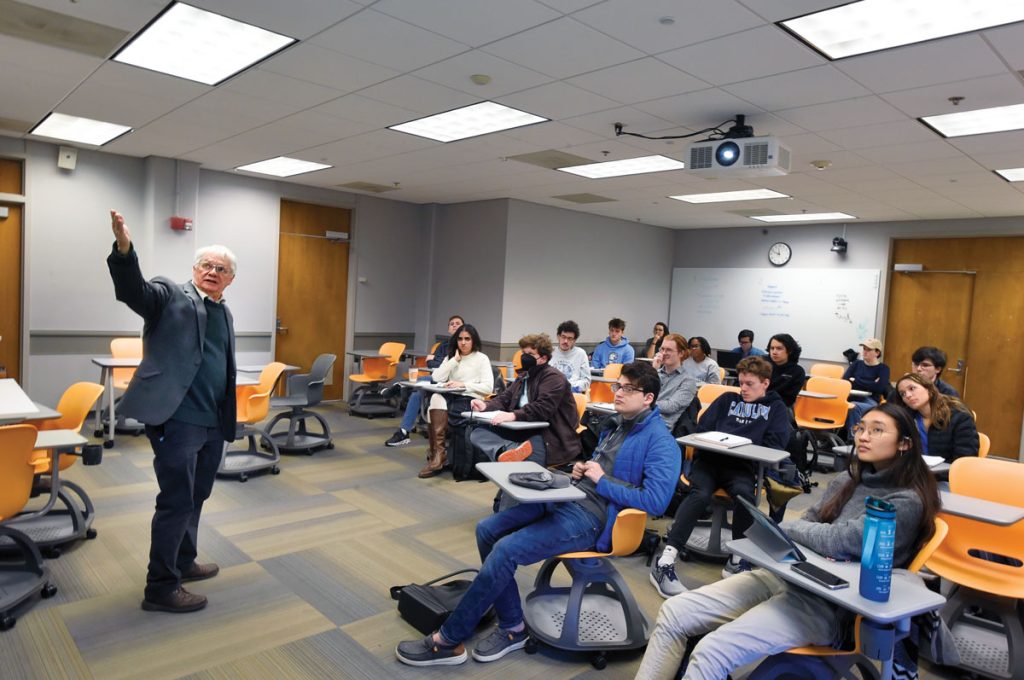
The joy of teaching
Kramer is hanging up his classroom lecture hat soon as well, as he teaches his final history course at UNC this semester.
“Modern European Intellectual History” covers the evolution of ideas in Europe from the 18th century to the beginning of the 21st century. Kramer wants his students to understand the traditions that have shaped the world and how the past informs the present.
When Kramer retires at the end of the academic year, he hopes to write and possibly to lead a few humanities seminars. He has a firm commitment with McGraw-Hill to update a textbook he first published in 2002, A History of Europe in the Modern World. The text is often used in high school AP European History courses, and its wide usage helped reinforce to Kramer the importance of the Carolina K-12 program.
As he reflects on almost four decades at Carolina, Kramer is thankful to his students at UNC and the generations of faculty members whose vision influenced him as well as the people he has met all over the state.
“The quality of the people on our campus and their commitment to the public make this one of the great universities,” he said. “We conscientiously show people outside Carolina the desire we have to make the world a better place.”
By Patty Courtright (B.A. ’75, M.A. ’83)
To make a gift to the Lloyd Kramer Endowed Fund for Faculty Support at CPH in honor of Kramer, contact Kathryn Banas at kathryn.banas@unc.edu or 919.843.2745 or visit the secure giving form.

